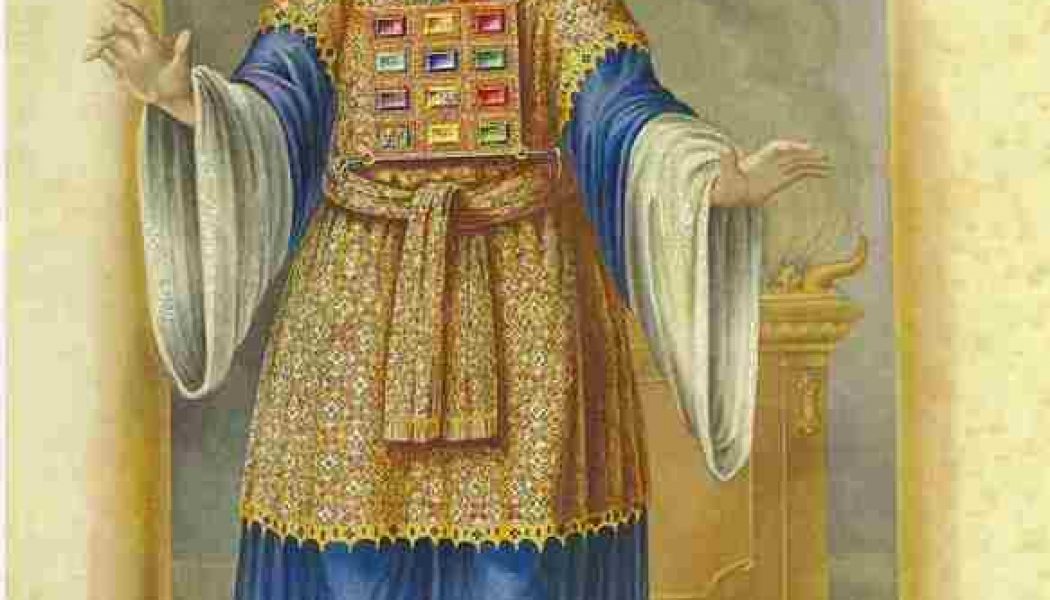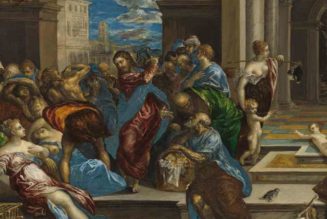
In the Office of Readings for Corpus Christi there is an antiphon rich in meaning yet at the same time mysterious:
I will give to the one who is victorious the hidden bread and a new name (Antiphon 1 from Lauds).
It is drawn from a longer text in the Book of Revelation, in the letter to the Church at Pergamum:
He who has an ear, let him hear what the Spirit says to the churches. To the one who conquers I will give some of the hidden manna, and I will give him a white stone, with a new name written on the stone that no one knows except the one who receives it(Rev 2:17).
Let us examine the many wonderful elements of the longer text.
He who has an ear, let him hear …
Jesus used these words often in the Gospels, especially in His parables. The expression seeks to appeal to those who have a soul that wants to hear. Obviously, all humans have ears, and most of us can hear, but that does not mean we listen or are willing to listen. Many have hardened their hearts and have thus acquired an ear that is deaf to the teachings of the Lord. Jeremiah says, To whom can I give this warning? Who will listen to me? Look, their ears are closed, so they cannot hear. See, the word of the LORD has become offensive to them; they find no pleasure in it(Jeremiah 6:10). Jesus also describes many people as ever seeing but never perceiving, and ever hearing but never understanding; otherwise they might turn and be forgiven(Mk 4:12). St. Stephen rebuked the people of his day: You stiff-necked people with uncircumcised hearts and ears! You always resist the Holy Spirit, just as your fathers did(Acts 7:51). Therefore, with this expression, the Lord addresses Himself to those who will listen and carefully ponder, for He is about to express truths that are only heard when the soul seeks to hear and is spiritually minded.
… what the Spirit says to the churches.
This means you! Although it is Jesus who is speaking, He is speaking to John through the Holy Spirit. He is speaking to the “churches” that is to the gatherings (e.g., parishes, dioceses) of all the faithful everywhere. So, He is speaking to you.
To the one who conquers …
Who is the one who conquers? John answers this elsewhere: Who then conquers the world? Only he who believes that Jesus is the Son of God(1 John 5:5). Hence, through faith we conquer and seek to be among those who have spirits able to hear what the Lord teaches.
I will give some of the hidden manna, …
The Church, in placing this antiphon prominently in the Office of Readings for Corpus Christi, clearly sets forth that the “hidden manna” is the Eucharist. Some in the past have sought to link this to the ciborium of manna that was placed in the Ark of the Covenant along with the tables of the Law and staff of Aaron. Moses had said to Aaron, Take a jar and fill it with an omer of manna. Then place it before the LORD to be preserved for the generations to come(Exodus 16:33). The ancient Ark of the Covenant disappeared during the Babylonian destruction of Jerusalem in 587 B.C. and has never been found. In this sense, it—and the vessel of manna that was within it—are hidden. This explanation fails to appreciate that the ancient Ark pointed to and is fulfilled in Christ. The old Ark was said to carry the presence of the Lord in Israel, but Mary is the Ark of the New Covenant, carrying in her womb and later her arms the very presence of God in Israel, our Lord Jesus Christ. The staff of Aaron the High Priest points to the true shepherd’s staff of our Lord. The stone tablets containing the Law point to Christ, the Word made Flesh, the perfection of God’s truth, and the fulfillment of His Law. The small jar of manna points to Christ, who is the true living bread come down from Heaven, who now dwells with us truly in His eucharistic presence in the ciboria within our tabernacles. Christ Himself said that the manna in the desert pointed to Him and that He is a perfect manna:
So [the crowd] asked Him, “What sign then will You perform, so that we may see it and believe You? What will You do? Our fathers ate the manna in the wilderness, as it is written: ‘He gave them bread from heaven to eat.” Jesus said to them, “Truly, truly, I tell you, it was not Moses who gave you the bread from heaven, but it is My Father who gives you the true bread from heaven. For the bread of God is He who comes down from heaven and gives life to the world.” “Sir,” they said, “give us this bread at all times.” Jesus answered, “I am the bread of life. … Your fathers ate the manna in the wilderness, yet they died. This is the bread that comes down from heaven, so that anyone may eat of it and not die. I am the living bread that came down from heaven. If anyone eats of this bread, he will live forever. And this bread, which I will give for the life of the world, is My flesh”(John 6:31ff).
Just as the ancient manna sustained the ancient Jews in their journey through the desert, so now Christ, our true and perfect manna, sustains us on our journey through the desert of this world to the Promised Land of Heaven.
Why is this manna, who is Christ, called hidden? It is “hidden because its truth is accessed and seen only through faith. To the worldly, the Eucharist seems nothing more than a wafer and some wine, but to the faithful, Christ is seen, whole and entire. St. Thomas Aquinas wrote,
I adore you devoutly, Godhead unseen, who truly lies hidden under these sacramental forms…. Sight, taste, and touch all fail, but only the hearing is safely believed; I believe whatever the Son of God has said, and nothing can be truer that the word of Truth Himself …. Jesus I look on your veiled presence and I pray that what I so ardently long for may come to pass, and that I may see your face unveiled and be happy in the vision of your glory(selected verses from Adoro Te Devote).
So, this hidden manna, Christ Himself, is given to us! Though hidden to earthly eyes, His true presence is grasped through faith.
… and I will give him a white stone, with a new name written on the stone that no one knows except the one who receives it.
The most likely historical reference here is to the ancient practice of issuing admission stones, sometimes called tessera hospitalis(hospitality stones) that functioned much like admission tickets do today. A hospitality stone was a small stone with some markings on it, which gave to its possessor admission to an event or gave him a claim of hospitality from the one who had given it. That it is called white is a reference more to its brightness than its color. The Greek word is λευκός (leukos), which means lightsome, bright, shining, or dazzling. One might think of a shining pearl or diamond.
There is a theory among some scholars that the glistening stone may also be akin to the Urim and Thummim, white and black stones worn by the high priest behind the square breastplate. The breastplate of the high priest was square and had twelve jewels (see depiction above). On each of these jewels was written the name of one of the tribes of Israel. The mysteries surrounding Urim and Thummim stones are many but seem associated with blessing or curse and with determining outcomes or seeking God’s will. The Urim may have been a diamond, as no diamond appears on the front of the breastplate. It is said that on it a name was written and only the high priest knew what this secret, unutterable name was. Most think it must have been the name Yahweh, the ineffable Name of God.
But what is this “new” name spoken of in this text? Many suggest that it is some special or hidden name that God has for us who bear the stone. However, the text does not say that the name pertains to us and, if the historical reference to the Urim has any hold, the name likely refers to the Lord. Further, Revelation 3:12 says of those who overcome this world: “I will write upon him the name of my God…I will write upon him my new name.”So, it is not likely a new name by which to call us, but rather the Name of the Lord God.
How is the name new? In one sense it could be that we understand God’s holy Name in a new manner, but contextually, “my new name,” seems to refer to Jesus, and Jesus is Lord! Of this Name, the Book of Revelation is full:
-
- He has eyes like blazing fire, and many royal crowns on His head. He has a name written on Him that only He Himself knows(Revelation 19:12).
- And He has a name written on His robe and on His thigh: King of kings and Lord of lords(Revelation 19:16).
- And they shall see his face and his name shall be on their foreheads(Rev 22:4).
Only the Lord fully knows His name, for in the ancient world a name pointed to the deep mystery of a person. We are privileged to receive the Name of Jesus as members of His Body. The text speaks to us in hope that as we are more fully immersed in Christ as a member of His Body we shall come to know ever more deeply the glory of the Name of Jesus and understand that there is no other name given to us by which we can be saved. There is power and deliverance in the Name of Jesus, and He shares this name with us, bestowing on us Himself, the Hidden Manna, the stone glistening with His beauty, glory, and clarity. Blessed be the Name of Jesus!
Such a rich meaning in such a brief antiphon from Corpus Christi!
I will give to the one who is victorious the hidden bread and a new name(Antiphon 1 from Lauds).
[embedded content]









